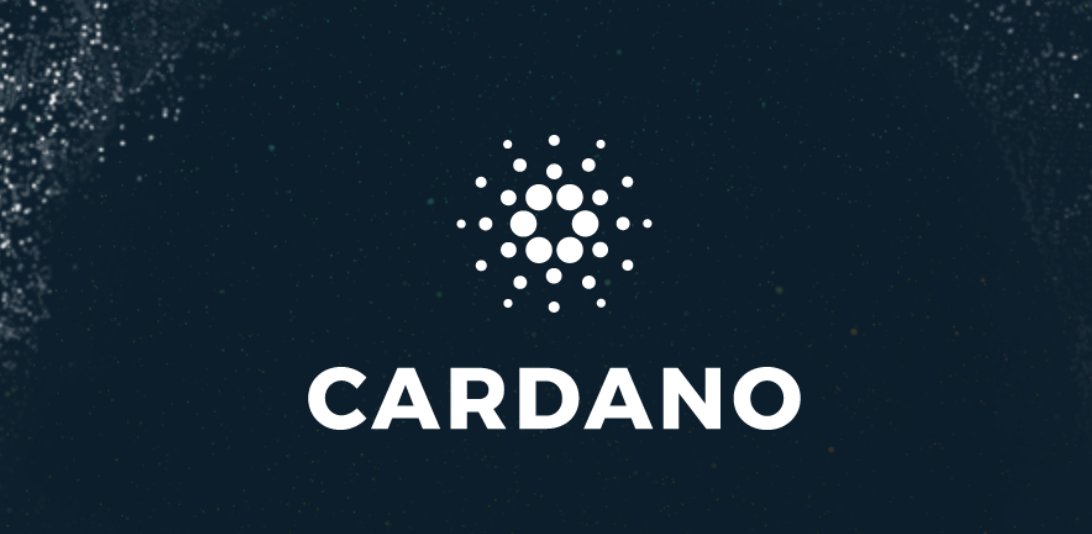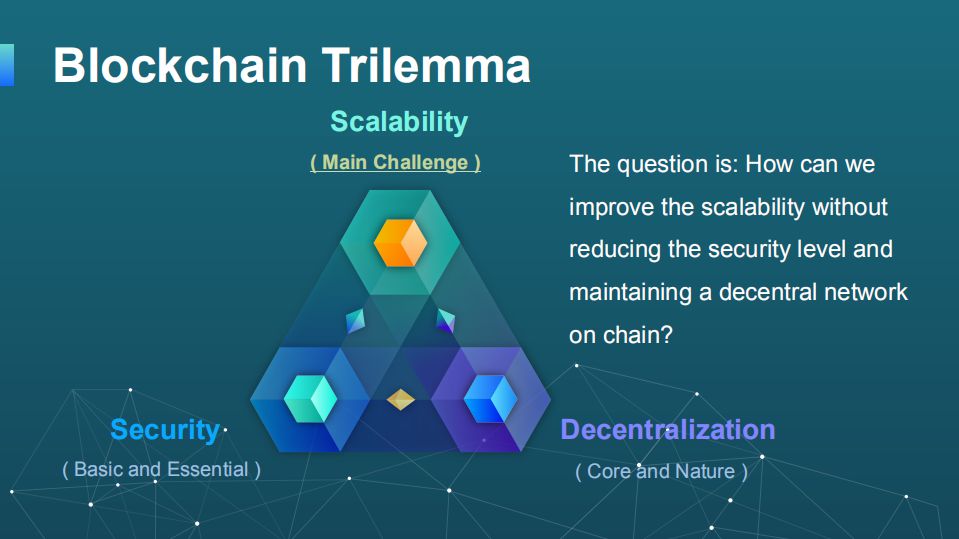
(1/38)
#Cardano “Understanding Africa” (Part 1 of 2)
This thread will be split into two parts with the 2nd coming out on Sunday.
Part 1 will layout the pervasive PROBLEMS Africa faces whereas Part 2 will apply direct technologies @InputOutputHK can implement as SOLUTIONS.
#Cardano “Understanding Africa” (Part 1 of 2)
This thread will be split into two parts with the 2nd coming out on Sunday.
Part 1 will layout the pervasive PROBLEMS Africa faces whereas Part 2 will apply direct technologies @InputOutputHK can implement as SOLUTIONS.
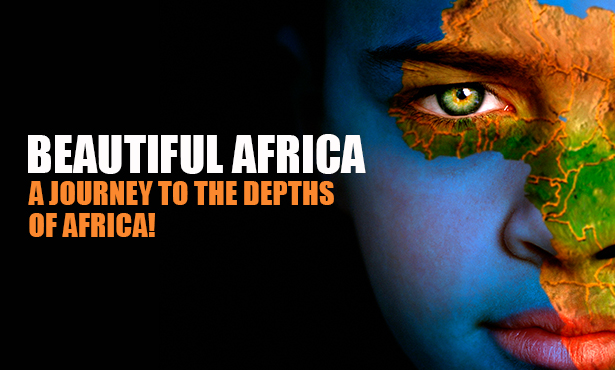
(2/38)
#Cardano will be the cornerstone of technology for the next global superpower.
Africa is one of the most resource-rich continents in the world hosting abundant resources like wind and wave power (underutilized), solar-capture,
#Cardano will be the cornerstone of technology for the next global superpower.
Africa is one of the most resource-rich continents in the world hosting abundant resources like wind and wave power (underutilized), solar-capture,
(3/38)
minerals, biomass (dire need of an upgrade), land, and human resource I.e the youngest and largest workforce in the world.
To fully understand and harness these resources we must first address the numerous PROBLEMS Africa has, and we will do this in great detail,
minerals, biomass (dire need of an upgrade), land, and human resource I.e the youngest and largest workforce in the world.
To fully understand and harness these resources we must first address the numerous PROBLEMS Africa has, and we will do this in great detail,
(4/38)
so bring your reading glasses and I welcome you to draw your own conclusions on how #Cardano has product-market fit. DM me or reply to this thread if you have solid ideas on plugging in technology to African users and I will shout you out in Part 2.
so bring your reading glasses and I welcome you to draw your own conclusions on how #Cardano has product-market fit. DM me or reply to this thread if you have solid ideas on plugging in technology to African users and I will shout you out in Part 2.
(5/38)
Water Scarcity
Large parts of Africa suffer from economic water scarcity (this plays a direct role in a country’s self-sufficiency and therefore economic output) due to the following reasons:
- unequal distribution driven by industry
Water Scarcity
Large parts of Africa suffer from economic water scarcity (this plays a direct role in a country’s self-sufficiency and therefore economic output) due to the following reasons:
- unequal distribution driven by industry
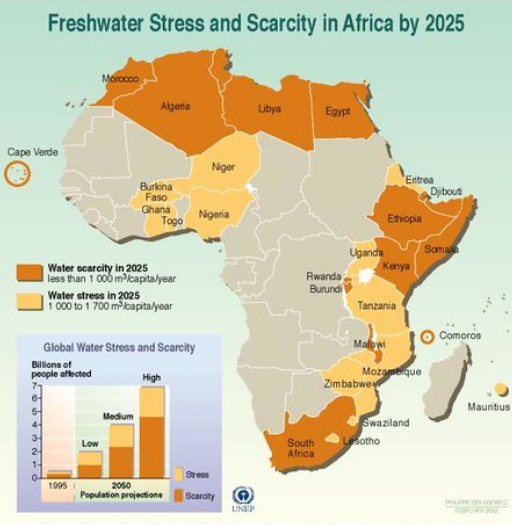
(6/38)
- (this is exacerbated by climate change)
- geographic location
- freshwater demand due to population surge
- poor water infrastructure
A direct solution would be to speed-up development on water infrastructure.
- (this is exacerbated by climate change)
- geographic location
- freshwater demand due to population surge
- poor water infrastructure
A direct solution would be to speed-up development on water infrastructure.
(7/38)
This is a massive undertaking as the rights to water access are highly complex mostly boiling down to state-level rights and local rights (rights between individuals or groups non-conforming to state issued permittance).
This is a massive undertaking as the rights to water access are highly complex mostly boiling down to state-level rights and local rights (rights between individuals or groups non-conforming to state issued permittance).

(8/38)
Additionally, rights are very fluid as usage is extremely tough to delegate for the following reasons:
- seasonal climate (dry and wet)
- invariable seasons (longer or shorter seasons)
- this affects potential amount of water in a given period
Additionally, rights are very fluid as usage is extremely tough to delegate for the following reasons:
- seasonal climate (dry and wet)
- invariable seasons (longer or shorter seasons)
- this affects potential amount of water in a given period
(9/38)
- quality of water
- use of water
- legitimate claim
A good example is in Tanzania where the current infrastructure for water access in the Ndurma River located in the Pangani River Basin is built upon a system first established by European settlers in the early 1900’s.
- quality of water
- use of water
- legitimate claim
A good example is in Tanzania where the current infrastructure for water access in the Ndurma River located in the Pangani River Basin is built upon a system first established by European settlers in the early 1900’s.
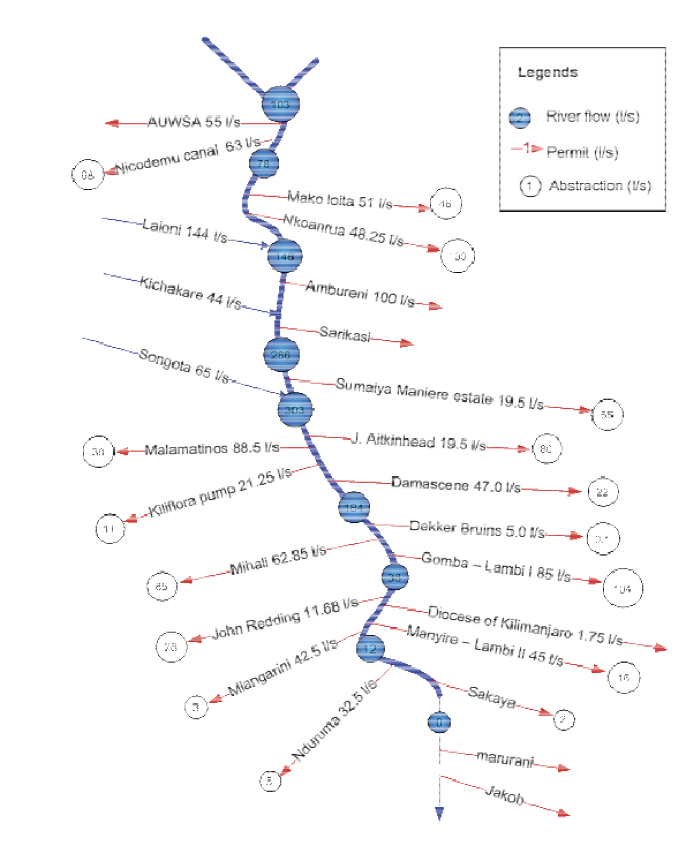
(10/38)
The water use is distributed among three geographically separated groups, upstream – mostly small farmers, mid-stream – mostly commercial irrigators, and downstream – mostly small farmers. The commercial irrigators tend to abide by state-level jurisdiction
The water use is distributed among three geographically separated groups, upstream – mostly small farmers, mid-stream – mostly commercial irrigators, and downstream – mostly small farmers. The commercial irrigators tend to abide by state-level jurisdiction
(11/38)
which grants them ‘water-use permits’ and the smaller farmers – commonly individuals with generational ties -- tend to abide by local-level jurisdiction governed by community-led committees.
which grants them ‘water-use permits’ and the smaller farmers – commonly individuals with generational ties -- tend to abide by local-level jurisdiction governed by community-led committees.
(12/38)
This creates convolution and conflict as each believe they have a legitimate claim based off their own ideals of legitimacy.
This is neither efficient nor sustainable especially with large concentration and pooled capital to streamline the flow/transportation of the
This creates convolution and conflict as each believe they have a legitimate claim based off their own ideals of legitimacy.
This is neither efficient nor sustainable especially with large concentration and pooled capital to streamline the flow/transportation of the
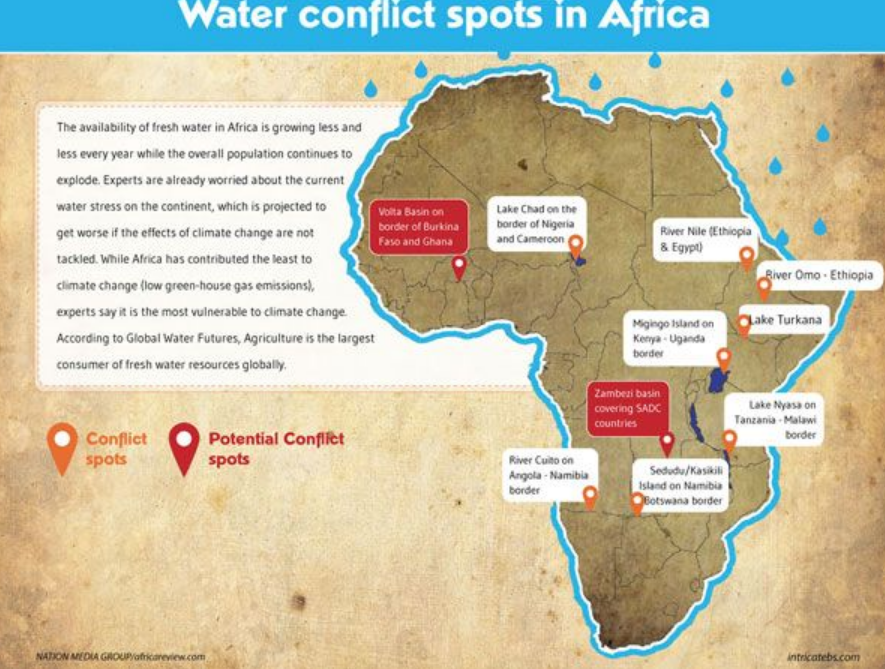
(13/38)
worlds largest freshwater lakes from lightly populated inland territory to heavily populated coastal territory.
Another reason for better infrastructure is that the highest morbidity rate in Africa is due to water-borne illness. This leads us into our next topic.
worlds largest freshwater lakes from lightly populated inland territory to heavily populated coastal territory.
Another reason for better infrastructure is that the highest morbidity rate in Africa is due to water-borne illness. This leads us into our next topic.
(14/38)
Disease & Medicine
Albeit medical infrastructure is improving and consequently mortality rates are declining and life expectancy rising, they are still amongst the worst in the world.
Disease & Medicine
Albeit medical infrastructure is improving and consequently mortality rates are declining and life expectancy rising, they are still amongst the worst in the world.
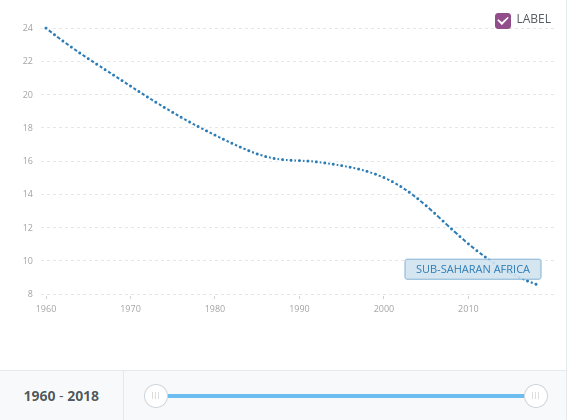
(15/38)
Africa bears 24% of the world's burden of disease, yet has fewer than 1% of the world's wealth.
There are a wide range of problems that Africa’s medical infrastructure faces today:
- drug shortages in rural facilities
Africa bears 24% of the world's burden of disease, yet has fewer than 1% of the world's wealth.
There are a wide range of problems that Africa’s medical infrastructure faces today:
- drug shortages in rural facilities
(16/38)
- mis-diagnosis due to lack of TRUSTED healthcare providers
- drug-delivery systems
- physician-to-population ratio is 8 times lower than global average (lowest in the world)
- misallocation of medical stock
- sub-optimal information flow between health districts
- mis-diagnosis due to lack of TRUSTED healthcare providers
- drug-delivery systems
- physician-to-population ratio is 8 times lower than global average (lowest in the world)
- misallocation of medical stock
- sub-optimal information flow between health districts
(17/38)
With that being said, there are currently massive initiatives underway to improve the current medical infrastructure in sub-Saharan Africa, most notably:
- mTrac (Ugandan SMS-based application linking private and public sector)
With that being said, there are currently massive initiatives underway to improve the current medical infrastructure in sub-Saharan Africa, most notably:
- mTrac (Ugandan SMS-based application linking private and public sector)
(18/38)
- mHealth (Kenyan mobile healthcare platform)
- Ubenwa (Nigerian Artificial Intelligent diagnosis app)
- Drone Delivery (Rwandan drug-distribution)
- mHealth (Kenyan mobile healthcare platform)
- Ubenwa (Nigerian Artificial Intelligent diagnosis app)
- Drone Delivery (Rwandan drug-distribution)
(19/38)
The digital health age is upon us and the surge of mobile-users combined with the very young populace-majority in Africa has produced MASSIVE competitive innovation to solve dire medical problems.
The digital health age is upon us and the surge of mobile-users combined with the very young populace-majority in Africa has produced MASSIVE competitive innovation to solve dire medical problems.
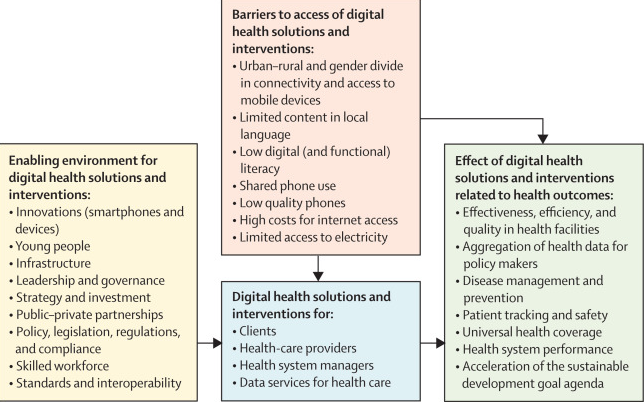
(20/38)
These are exciting times for an emerging digital health market so I urge you to take a step back and think about how all these technologies can run with built-in scalability, security, interoperability and possibly trustlessness in a historically untrustworthy country.
These are exciting times for an emerging digital health market so I urge you to take a step back and think about how all these technologies can run with built-in scalability, security, interoperability and possibly trustlessness in a historically untrustworthy country.
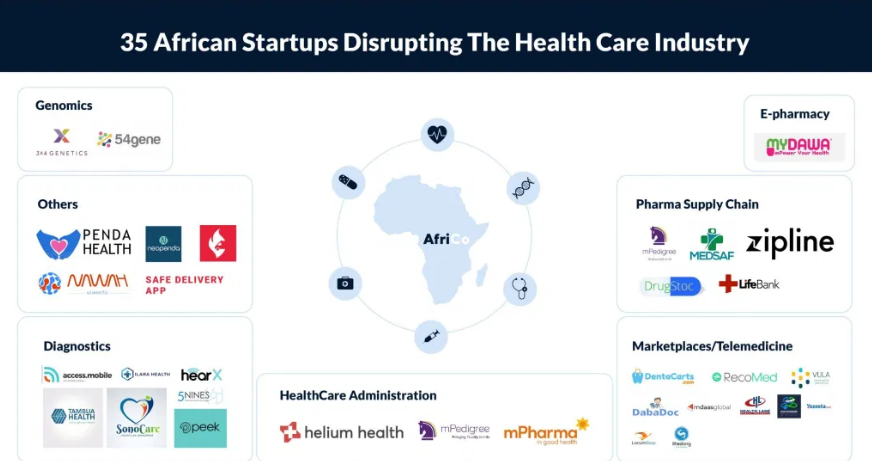
(21/38)
African Economy
To understand how #Cardano and #DeFi can aid Africa we need to first understand the current financial landscape of Africa.
As already stated, Africa is among the most resource-rich continents
African Economy
To understand how #Cardano and #DeFi can aid Africa we need to first understand the current financial landscape of Africa.
As already stated, Africa is among the most resource-rich continents

(22/38)
in the world with the potential to reach a $29 trillion dollar GDP which is 11x their current nominal GDP.
With all this resource and potential, why is it that Africa is over-burdened with debt?
Here are some macro-reasons:
in the world with the potential to reach a $29 trillion dollar GDP which is 11x their current nominal GDP.
With all this resource and potential, why is it that Africa is over-burdened with debt?
Here are some macro-reasons:
(23/38)
- oil price shocks (1973-1974 $ 1978-1979)
- expansion of the Eurodollar
- 1973-1974 recession
- public expenditure by African governments
- rising interest rates
- relying on commodity export over structural transformation (short term over long term)
- capital flight
- oil price shocks (1973-1974 $ 1978-1979)
- expansion of the Eurodollar
- 1973-1974 recession
- public expenditure by African governments
- rising interest rates
- relying on commodity export over structural transformation (short term over long term)
- capital flight
(24/38)
Taking loans from multiple creditors has left Africa paying massive amounts of interest thus slowing economic growth, increasing poverty, and delaying direly needed policy reform. The majority of external debt payments is owed to private lenders and China.
Taking loans from multiple creditors has left Africa paying massive amounts of interest thus slowing economic growth, increasing poverty, and delaying direly needed policy reform. The majority of external debt payments is owed to private lenders and China.

(25/38)
Possible solutions to this problem:
- loans spent on high-return investments that also build infrastructure to pay off interest
• roads
• energy renewal
• telecommunication
• electricity production
Possible solutions to this problem:
- loans spent on high-return investments that also build infrastructure to pay off interest
• roads
• energy renewal
• telecommunication
• electricity production
(26/38)
- governments should bargain for competitive interest rates
- governments should handle funds transparently (eliminating distrust from investors)
- better credit rating standards and guidelines (DeFi opportunity)
- governments should bargain for competitive interest rates
- governments should handle funds transparently (eliminating distrust from investors)
- better credit rating standards and guidelines (DeFi opportunity)
(27/38)
However sound in theory, much like #Bitcoin, Africa needs more regulation and economic policy at the regional and international level for foreign investment to be less reticent as emerging market inflows are on the rise. Here are some things policies need to fix:

However sound in theory, much like #Bitcoin, Africa needs more regulation and economic policy at the regional and international level for foreign investment to be less reticent as emerging market inflows are on the rise. Here are some things policies need to fix:


(28/38)
- corruption in the form of nepotism and embezzlement
Example: Ethiopian emperor Haileselassie
- history of fund mismanagement
Examples: Aswan High Dam and Akosombo Dam
- history of poor human resource management
Example: Tanzanian gravel production
- poor taxation
- corruption in the form of nepotism and embezzlement
Example: Ethiopian emperor Haileselassie
- history of fund mismanagement
Examples: Aswan High Dam and Akosombo Dam
- history of poor human resource management
Example: Tanzanian gravel production
- poor taxation
(29/38)
Let me start the process and point out some product-market fit opportunities #Cardano has that also run in-line with the emergence of the African economy:
Let me start the process and point out some product-market fit opportunities #Cardano has that also run in-line with the emergence of the African economy:
(30/38)
- Trade
• supply chain processing (delay mitigation)
• trustless import/export (loss of income and opportunity)
• digitizing process-control (fraud elimination)
- Entrepreneurship
• no-collateral loans
• 0% interest loans
- Trade
• supply chain processing (delay mitigation)
• trustless import/export (loss of income and opportunity)
• digitizing process-control (fraud elimination)
- Entrepreneurship
• no-collateral loans
• 0% interest loans
(31/38)
- Proper Tax Policies
• multinational tax authority data tracking
• micro-transaction visibility
• reducing VAT fraud
- Infrastructure
• Electric-grid management
• Project management system(large-scale commercial development)
- Proper Tax Policies
• multinational tax authority data tracking
• micro-transaction visibility
• reducing VAT fraud
- Infrastructure
• Electric-grid management
• Project management system(large-scale commercial development)
(32/38)
- Education
• Democratization of teaching
• Trust-based enrollment (digital identity)
• Expedited and verifiable document retrieval (diploma, awards, certifications)
- Real Estate
• verifiable registry
• tokenization
• title verification
- Education
• Democratization of teaching
• Trust-based enrollment (digital identity)
• Expedited and verifiable document retrieval (diploma, awards, certifications)
- Real Estate
• verifiable registry
• tokenization
• title verification
(33/38)
I encourage the #Cardano community to expand on this. Do your research ie (Atala Prism, Plutus etc) and possibly develop innovative ideas and pitch your ideas through Catalyst which is a funding platform build in to the #Cardano platform as part of their governance arm.
I encourage the #Cardano community to expand on this. Do your research ie (Atala Prism, Plutus etc) and possibly develop innovative ideas and pitch your ideas through Catalyst which is a funding platform build in to the #Cardano platform as part of their governance arm.
(34/38)
I hope with this you have a broader understanding of just how important #Cardano is and how well-positioned we are with Input Output Global, @InputOutputHK, @IOHK_Charles
I hope with this you have a broader understanding of just how important #Cardano is and how well-positioned we are with Input Output Global, @InputOutputHK, @IOHK_Charles
(35/38)
and the enterprise arm at the forefront of technological solutions in not just Africa, but any emerging or developing market in the world.
These technologies can be extrapolated across the globe, Africa is only the beginning!
and the enterprise arm at the forefront of technological solutions in not just Africa, but any emerging or developing market in the world.
These technologies can be extrapolated across the globe, Africa is only the beginning!
(36/38)
If you are a #Cardano community member, I strongly urge you to stay tuned for Part 2 of “Understanding Africa” coming out on Sunday as I will be working with Founder of @liqwidfinance, @DCdoso on the implication of their protocol and how you can help!
If you are a #Cardano community member, I strongly urge you to stay tuned for Part 2 of “Understanding Africa” coming out on Sunday as I will be working with Founder of @liqwidfinance, @DCdoso on the implication of their protocol and how you can help!
(37/38)
Lastly, I will be splitting my $ADA across multiple wallets to diversify into stake pools with Africa-forward initiatives. If you feel a need or desire to have real-world impact and are looking to delegate or cross delegate here are some pools to consider:
Lastly, I will be splitting my $ADA across multiple wallets to diversify into stake pools with Africa-forward initiatives. If you feel a need or desire to have real-world impact and are looking to delegate or cross delegate here are some pools to consider:
(38/38)
@Cardano_Afrik
@poapool
@weqnt
I am also going to keep a portion of my $ADA remaining in my current stake pool: @ReliableStaking
@Cardano_Afrik
@poapool
@weqnt
I am also going to keep a portion of my $ADA remaining in my current stake pool: @ReliableStaking
@EyeOfTheKing1
@Beastlyorion
@GenZod7
@cryptorecruitr
@rafael_leka
@_Cardano_ADA
@CardanoEffect
@IvanOnTech
@RealSaidov
@jasonappleton
@CryptoGainzz
@CryptoIRELAND1
@nierop_pieter
@KingCardano
@JRNYcrypto
@NewsAsset
@CardanoBuzz
@Dr_shwetaPHD
@Ahjira
@RichardMcCrackn
@Beastlyorion
@GenZod7
@cryptorecruitr
@rafael_leka
@_Cardano_ADA
@CardanoEffect
@IvanOnTech
@RealSaidov
@jasonappleton
@CryptoGainzz
@CryptoIRELAND1
@nierop_pieter
@KingCardano
@JRNYcrypto
@NewsAsset
@CardanoBuzz
@Dr_shwetaPHD
@Ahjira
@RichardMcCrackn
• • •
Missing some Tweet in this thread? You can try to
force a refresh

